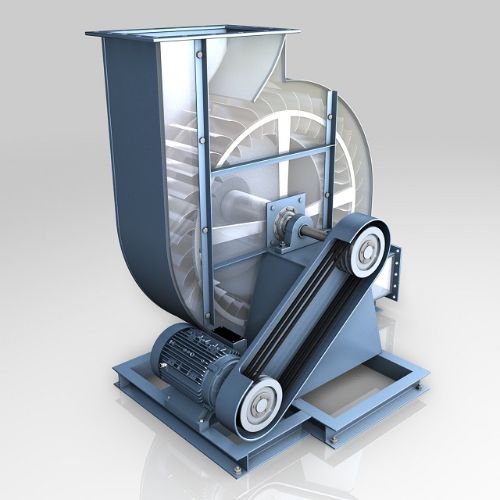- Vibration sensors
- Vibration sensors and transmitters
- Integration and applications
Integration and applications
Monitoring of the overall vibration according to the international standard ISO 10816-3 / ISO 20816-3.
- Detect incipient damage early
- Avoid consequential damage
- Minimise downtime
By monitoring the vibration velocity (v-RMS) on a non-rotating component surface, increased vibration levels due to imbalance, misalignment or loosening can be identified.
Vibration monitoring according to ISO 10816 is widely used in various industrial machines such as pumps, motors, fans and many other areas...
Integration

VTV integration example
VTV vibration transmitters have an analogue 4-20 mA output signal.
The signal can be easily connected to analogue inputs on frequency converters or to controllers to monitor the vibration severity (v-RMS) according to ISO 10816.

VKV integration example
VKV vibration transmitters have a switching output in addition to the 4-20 mA analogue signal.
By mechanically setting switching limits and a switching delay, a monitoring task on a fan can be implemented with an additional switching function.

VNB integration example
Universal and direct indication of warning and alarm states via RGB display as well as optional use of an external analogue 4-20 mA input (e.g. temperature).

VWV integration example
For example, battery-powered VWV vibration sensors can be used to communicate the vibration velocity (v-RMS) and surface temperature of an electric motor to a ZB0929 gateway via an intelligent mesh network. The gateway supports the common MQTT and HTTP protocols and can be used in combination with ifm’s IIoT platform moneo.
Applications

Axial fan
- Unbalance
- Misalignment
- Loose footing
- Long-term resonance operation

Radial fan
- Unbalance
- Misalignment
- Loose footing
- Belt issues
- Long-term resonance operation

Pumps
- Unbalance
- Misalignment
- Loose footing

Motor
- Unbalance
- Misalignment
- Loose footing